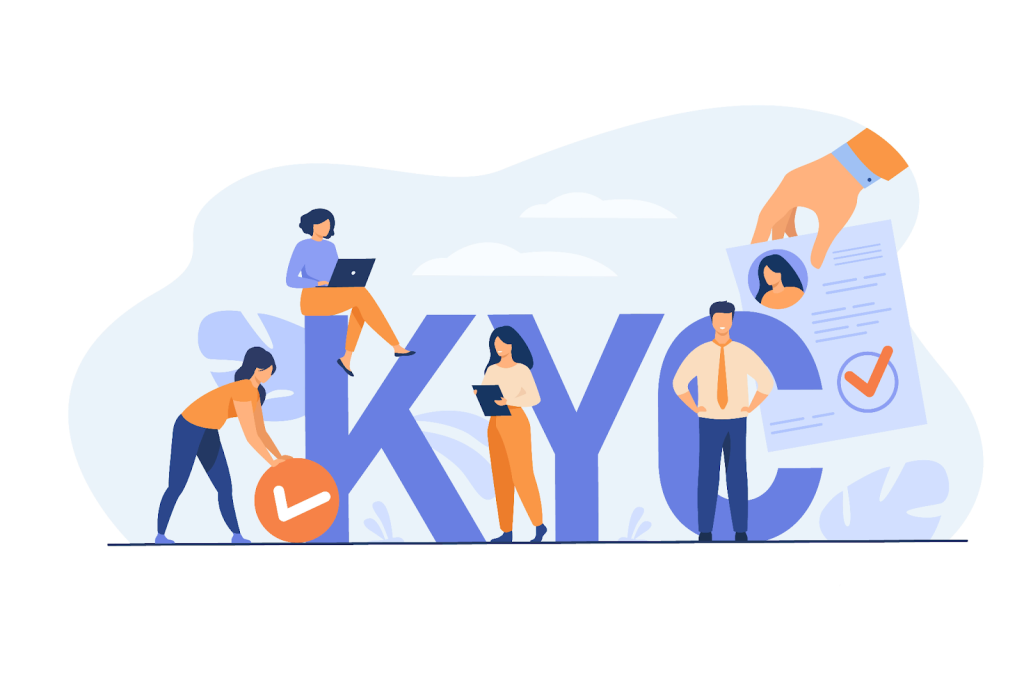In today’s digitally advanced world, the need for secure and efficient identification processes is more critical than ever. One pivotal development in this arena is the advent of Electronic Know Your Customer (e-KYC), a revolutionary method that streamlines the process of identity verification for financial transactions. For anyone seeking clarity on the term e KYC full form and its implications, this article provides a comprehensive understanding.
What is E-KYC?
The e-KYC full form stands for Electronic Know Your Customer. It is a digital means of verifying the identity of an individual, primarily used by financial institutions to adhere to regulatory requirements while ensuring seamless customer onboarding. Unlike traditional KYC processes, which involve physical document submission and manual verification, e-KYC leverages technology to make the process instantaneous and paperless.
How Does E-KYC Work?
E-KYC primarily uses biometrics and online verification processes to authenticate an individual’s identity. It taps into government databases, such as those linked to national identification systems, to validate the information provided by the customer. With the proliferation of smartphones and improved internet connectivity, e-KYC processes can be executed with ease, providing customers with the flexibility to complete identity verification from their homes.
Key Components of E-KYC
- Biometric Verification: Utilizes fingerprints or iris scans to ensure the person presenting the identification is genuine.
- OTP-Based Verification: Sends a One-Time Password to the registered mobile number or email to confirm the customer’s identity.
- Digital Document Submission: Allows customers to upload documents electronically, reducing the need for physical paperwork.
The Role of E-KYC in Financial Transactions
E-KYC plays a crucial role in accelerating financial transactions. It facilitates the onboarding process for new customers, enabling them to access financial services quickly without the cumbersome paperwork traditionally associated with KYC processes. This efficiency is particularly beneficial for transactions like getting a 25000 personal loan, where speed is of the essence.
Advantages of E-KYC for Personal Loans
- Faster Approval: Traditional personal loan applications can take days or even weeks to process. With e-KYC, verification can be completed within minutes, significantly expediting loan approvals.
- Reduced Costs: By eliminating paper-based processes, banks and financial institutions save on administrative costs. This reduction in expenses can sometimes translate to better loan terms for the customer.
- Enhanced Security: The use of biometrics and secure digital data transfer reduces the risk of identity fraud, providing both lender and borrower with greater peace of mind.
E-KYC and the Customer Experience
For consumers, the transition to e-KYC offers a more streamlined and user-friendly experience. Customers are no longer required to visit bank branches or financial institutions physically, endure long wait times, or keep multiple copies of documents. The entire process can be completed online, saving both time and resources while enhancing overall customer satisfaction.
Challenges and Considerations
While e-KYC offers numerous benefits, it is not without its challenges. Privacy concerns and the need for robust cybersecurity measures are paramount, as the digitization of identity verification processes exposes sensitive personal data to potential cyber threats. Therefore, financial institutions must invest in advanced security protocols to safeguard customer information.
Additionally, while many countries have embraced e-KYC, the level of adoption varies worldwide, primarily due to differing regulatory frameworks and technological readiness.
Conclusion
The e-KYC full form, Electronic Know Your Customer, represents a paradigm shift in how identity verification processes are conducted, particularly within the financial sector. By leveraging digital technology, e-KYC not only simplifies the procedure but also accelerates access to services such as obtaining a 25000 personal loan. Although challenges remain, the advantages of e-KYC far outweigh these obstacles, making it an indispensable tool in modernizing financial transactions.
As technology continues to evolve, e-KYC is likely to become even more integral to financial operations, underscoring its pivotal role in facilitating faster, more secure, and convenient financial interactions. For individuals and financial institutions alike, understanding and embracing e-KYC is crucial for keeping pace with the ever-changing landscape of digital finance.



